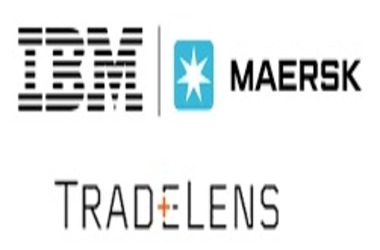
In January of 2018, the two corporations announced the formation of a blockchain-based partnership to facilitate the global movement and dispatch of commodities using blockchain technology. At the period, the two companies said that this sort of platform was necessary since outdated, expensive, and ineffective practices made cargo tracking difficult.
The laborious transfer of paper documents to clear products for export or import, customs clearance, and remittances is one example. Utilizing blockchain technology, IBM and Maersk seek to develop more effective and safe means for performing global commerce.
It planned to “co-develop an open-standards-based international trade digitalization platform.” This featured the use of blockchain technology to assist shipping businesses and merchants in the digital movement and tracking of their products across global boundaries, with increased transparency, safety, effectiveness, and ease.
Blockchain would give a reliable perspective of supply chain trades and might potentially remove the requirement for paper documentation in favor of a digital approach. It appeared that Blockchain was the optimal answer. As a digital tool for recording and validating transactions, blockchain was first connected mostly with banks and financial institutions. Additionally, it was primarily identified as the international digital ledger that underlies bitcoin.
This prompted IBM to forecast that the majority of banks would embrace blockchain technology. However, blockchain is also applicable to other businesses, such the shipping sector, which maintains vast networks of different partners. Maersk and IBM seem to have successfully developed the TradeLens platform. On Monday, however, Maersk stated that the TradeLens group is taking steps to remove the offers and cease the platform, with the intention that it “go down by the end of the first quarter of 2023.”
Throughout this procedure, all concerned parties will guarantee that there are no delays to their operations, the shipping behemoth stressed. Rotem Hershko, director of business systems at A.P. Moller – Maersk, said, “TradeLens was developed with the objective to achieve a major breakthrough in the digitalization of the worldwide supply chain as an open and impartial industry system.”
Hershko stated that, despite the fact that a suitable platform has been built, the demand for global industry cooperation has not been met. “As a consequence, TradeLens has not achieved the degree of economic viability required to continue operations and accomplish financial goals as a standalone corporation.”
Hershko said, “We are profoundly appreciative of the tireless efforts of our dedicated industry members and several IT experts, who have worked tirelessly to progress the digitization of the business via the TradeLens network.”
Hershko said, “We will use the experience of TradeLens as a launching pad to further advance our digital strategy, and we look forward to tapping the passion and expertise of our technical workforce in novel methods.”